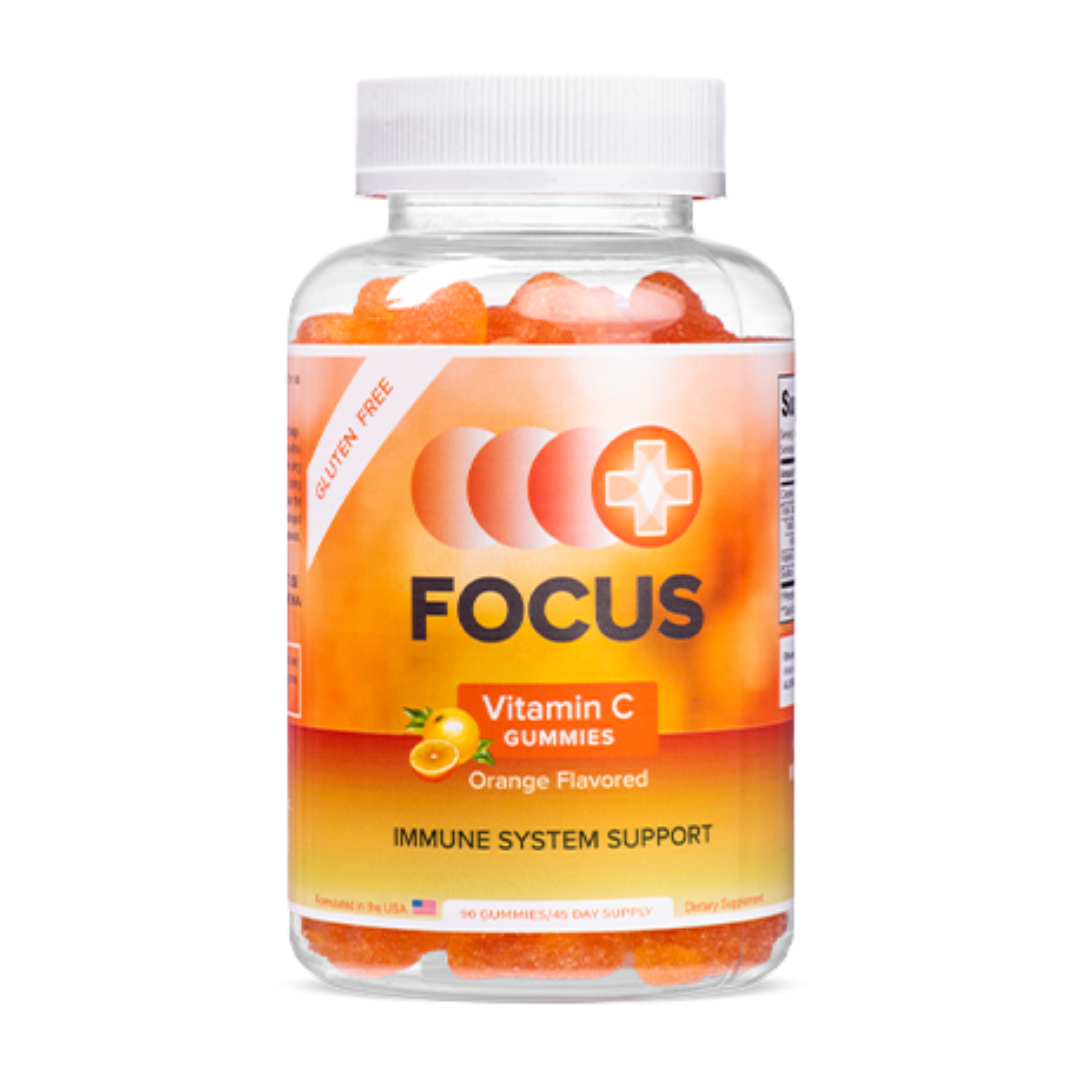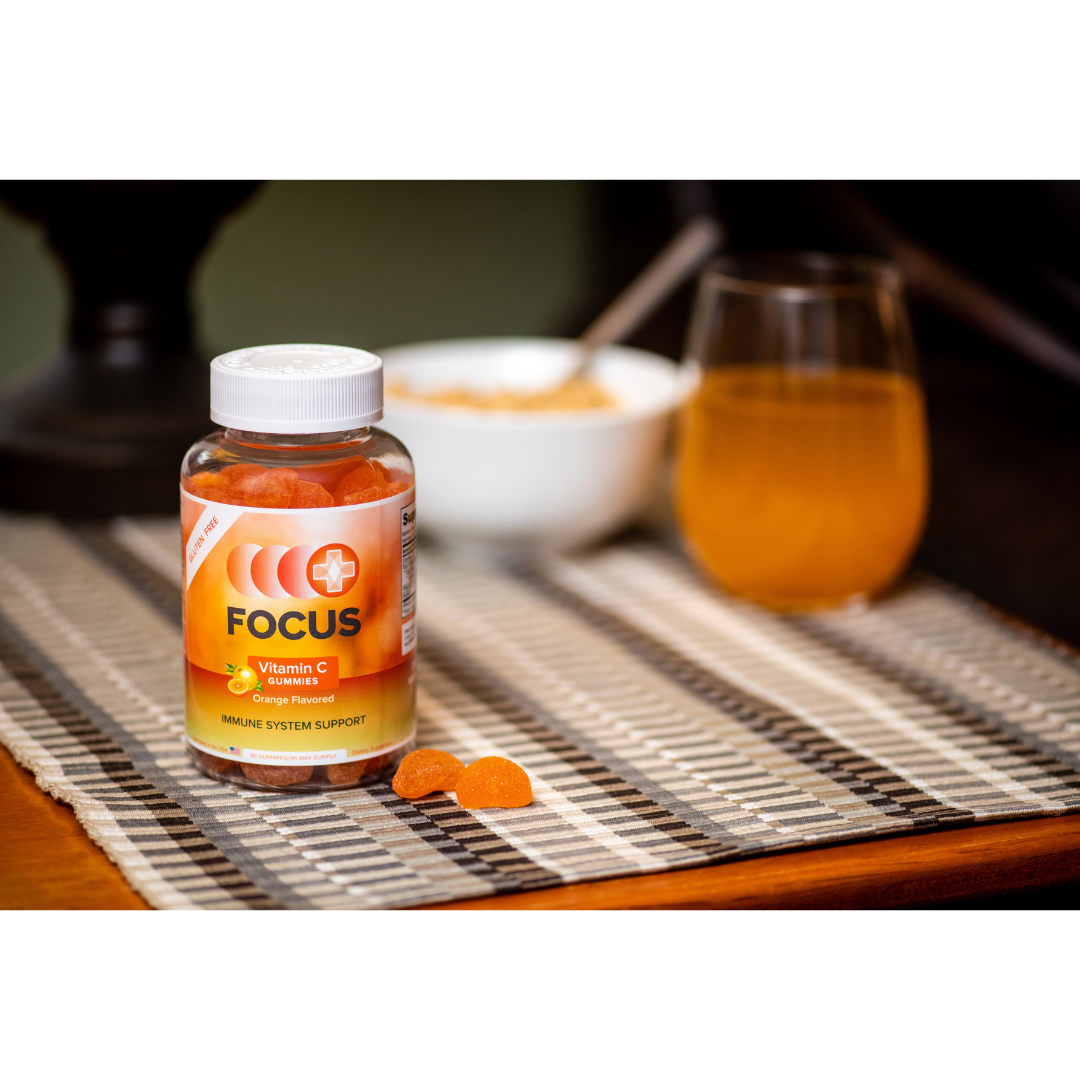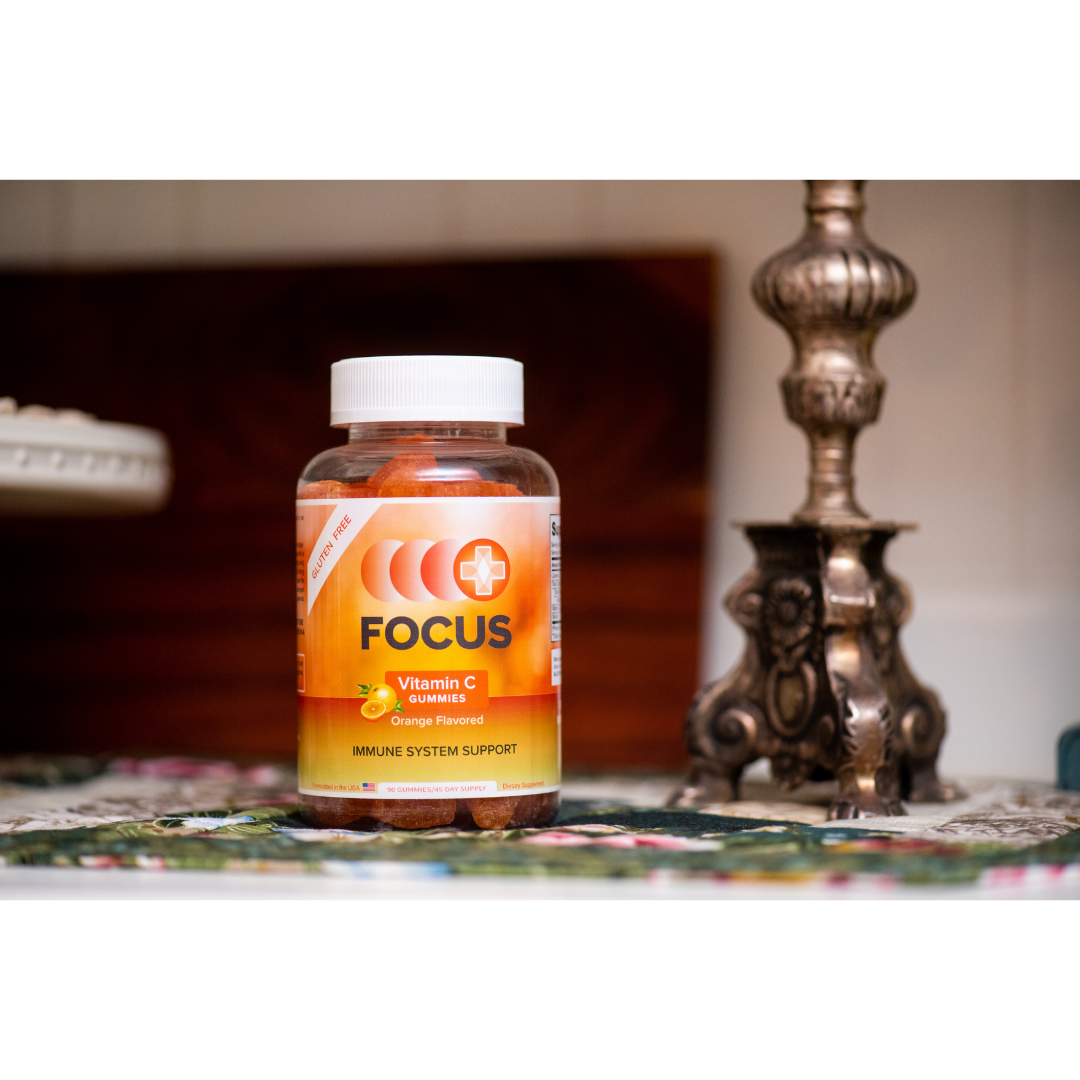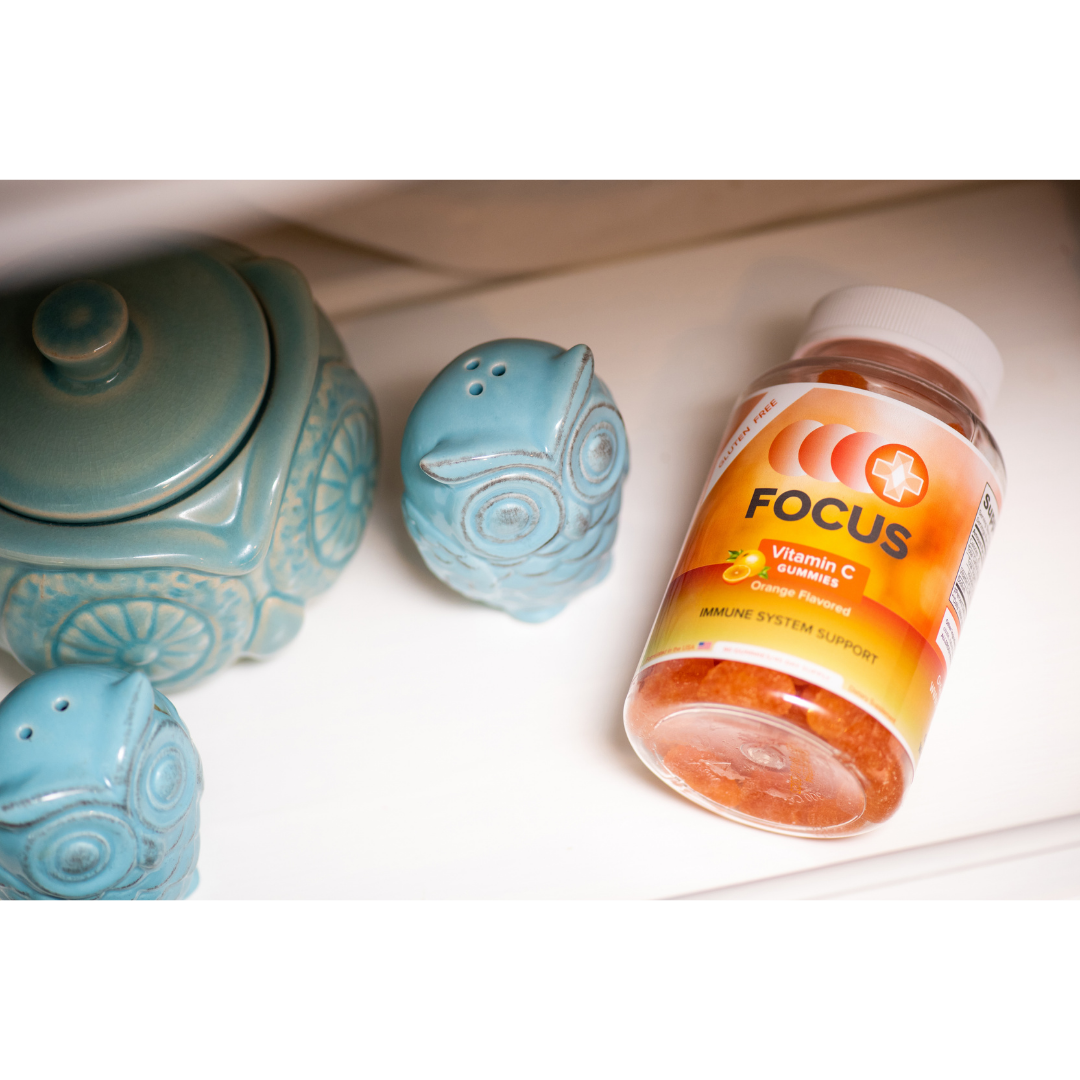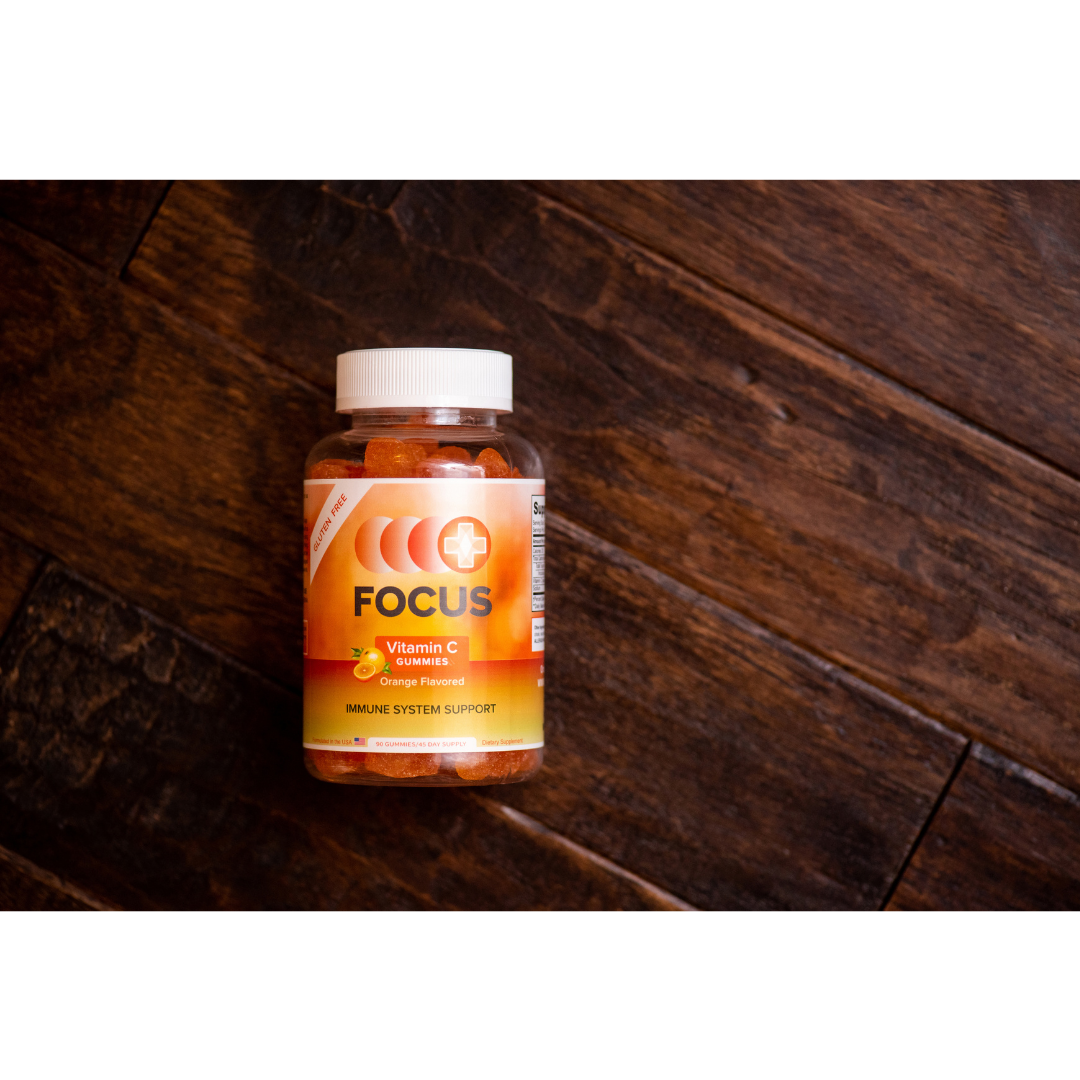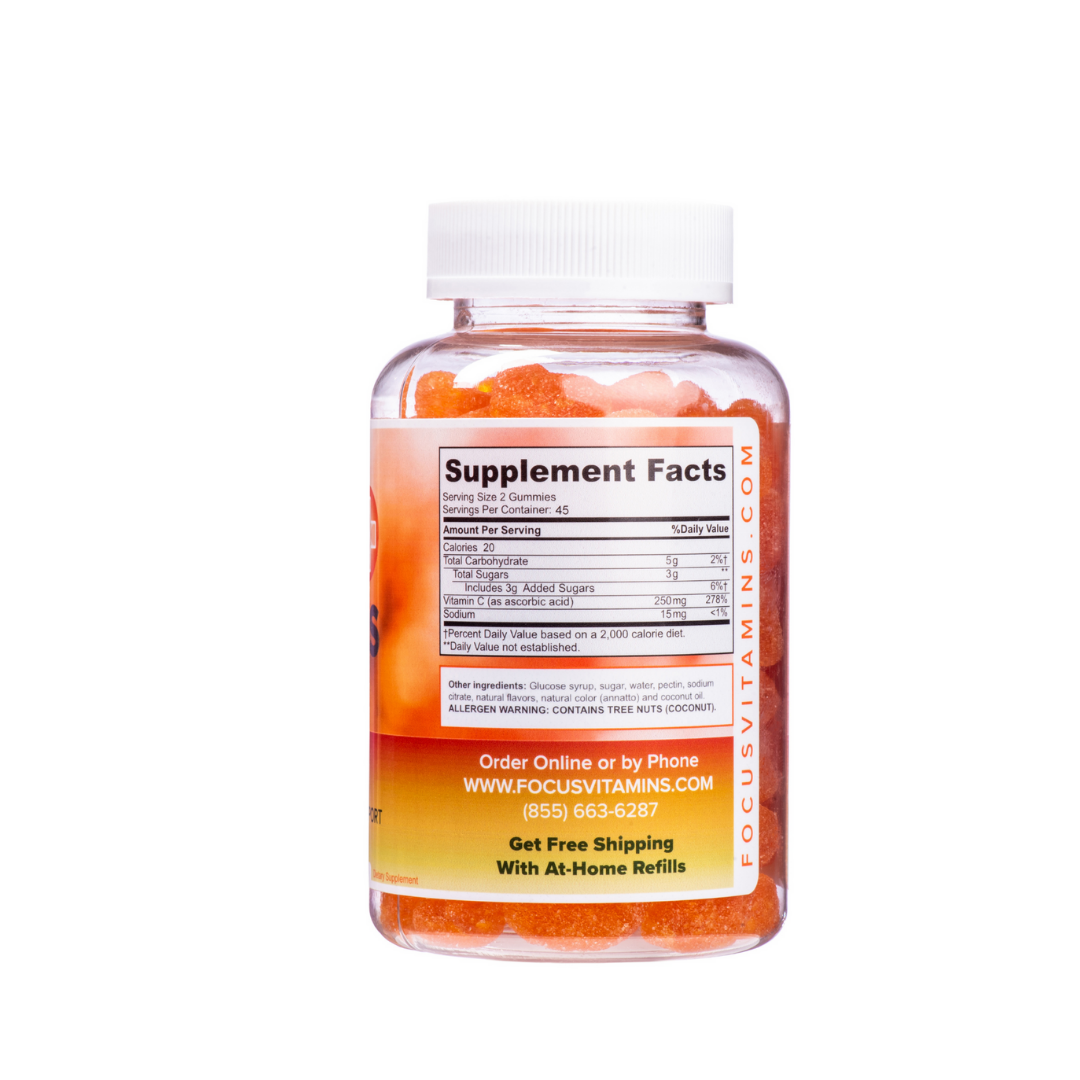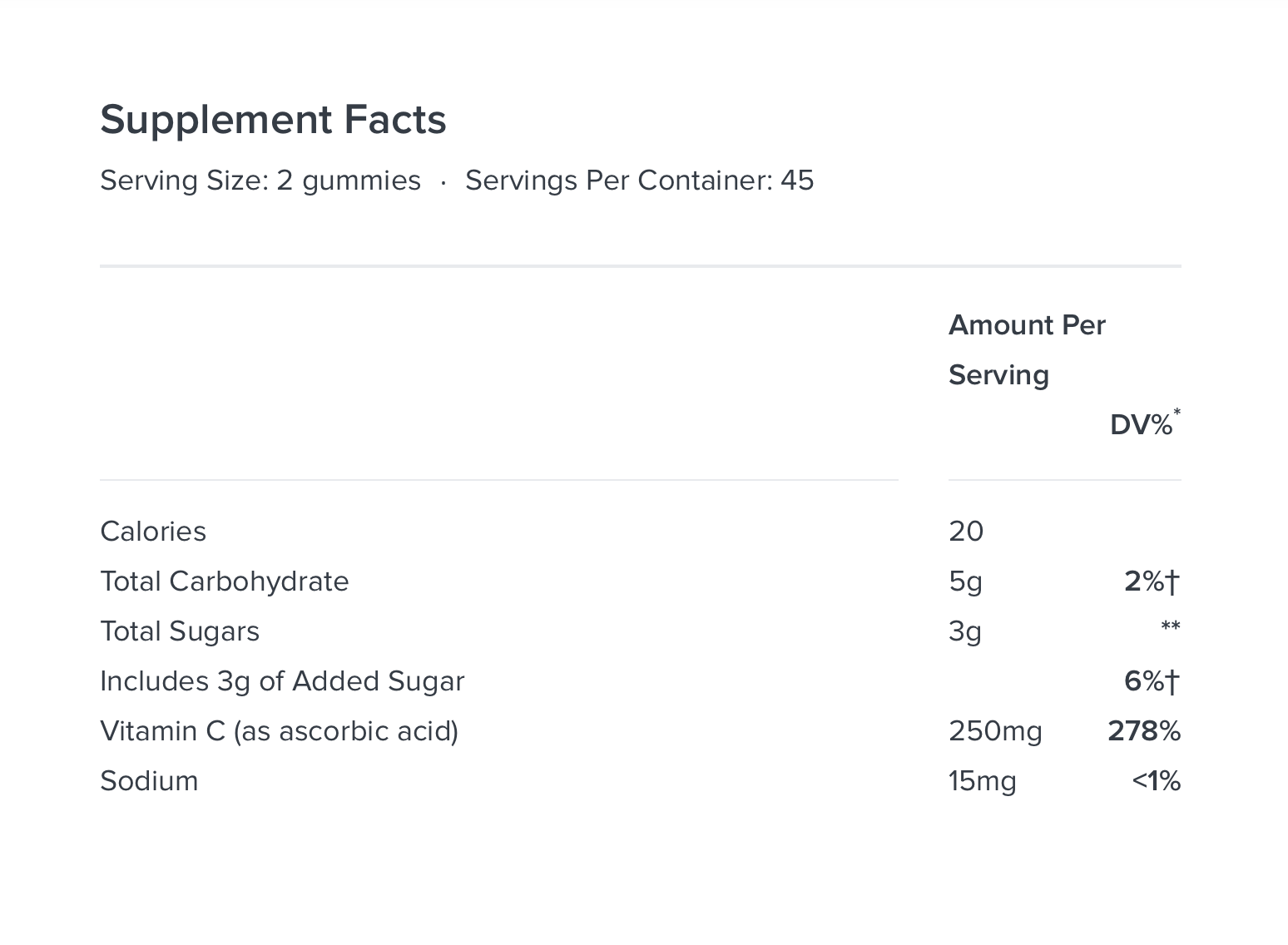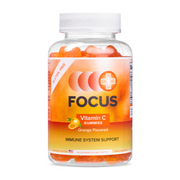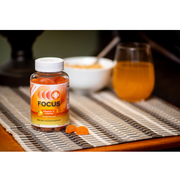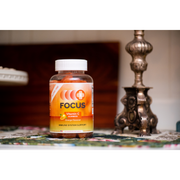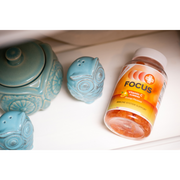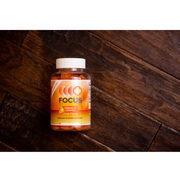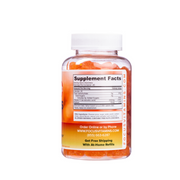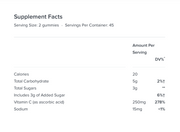Focus Vitamin C Health Support Vitamins- Orange Flavor Gummies
Cataracts - What is a Cataract?
What is a cataract?
A cataract is a clouding of the lens in the eye that affects vision. Most cataracts are related to aging. Cataracts are very common in older people. By age 80, more than half of all Americans either have a cataract or have had cataract surgery.
A cataract can occur in either or both eyes. It cannot spread from one eye to the other.
What is the lens?
The lens is a clear part of the eye that helps to focus light, or an image, on the retina. The retina is the light-sensitive tissue at the back of the eye.
In a normal eye, light passes through the transparent lens to the retina. Once it reaches the retina, light is changed into nerve signals that are sent to the brain.
The lens must be clear for the retina to receive a sharp image. If the lens is cloudy from a cataract, the image you see will be blurred.
Are there other types of cataract
Yes. Although most cataracts are related to aging, there are other types of cataract:
- Secondary cataract. Cataracts can form after surgery for other eye problems, such as glaucoma. Cataracts also can develop in people who have other health problems, such as diabetes. Cataracts are sometimes linked to steroid use.
- Traumatic cataract. Cataracts can develop after an eye injury, sometimes years later.
- Congenital cataract. Some babies are born with cataracts or develop them in childhood, often in both eyes. These cataracts may be so small that they do not affect vision. If they do, the lenses may need to be removed.
- Radiation cataract. Cataracts can develop after exposure to some types of radiation.
Source & Credit - Enhanced Vision
National Eye Institute. Facts About Cataract
Diabetic Retinopathy - What is Diabetic Eye Disease?
What is diabetic eye disease?
Diabetic eye disease refers to a group of eye problems that people with diabetes may face as a complication of diabetes. All can cause severe vision loss or even blindness.
Diabetic eye disease may include:
- Diabetic retinopathy—damage to the blood vessels in the retina.
- Cataract—clouding of the eye’s lens. Cataracts develop at an earlier age in people with diabetes.
- Glaucoma—increase in fluid pressure inside the eye that leads to optic nerve damage and loss of vision. A person with diabetes is nearly twice as likely to get glaucoma as other adults.
What is diabetic retinopathy?
Diabetic retinopathy is the most common diabetic eye disease and a leading cause of blindness in American adults. It is caused by changes in the blood vessels of the retina.
In some people with diabetic retinopathy, blood vessels may swell and leak fluid. In other people, abnormal new blood vessels grow on the surface of the retina. The retina is the light-sensitive tissue at the back of the eye. A healthy retina is necessary for good vision.
If you have diabetic retinopathy, at first you may not notice changes to your vision. But over time, diabetic retinopathy can get worse and cause vision loss. Diabetic retinopathy usually affects both eyes.
What are the stages of diabetic retinopathy?
Diabetic retinopathy has four stages:
- Mild Nonproliferative Retinopathy. At this earliest stage, microaneurysms occur. They are small areas of balloon-like swelling in the retina’s tiny blood vessels.
- Moderate Nonproliferative Retinopathy. As the disease progresses, some blood vessels that nourish the retina are blocked.
- Severe Nonproliferative Retinopathy. Many more blood vessels are blocked, depriving several areas of the retina with their blood supply. These areas of the retina send signals to the body to grow new blood vessels for nourishment.
- Proliferative Retinopathy. At this advanced stage, the signals sent by the retina for nourishment trigger the growth of new blood vessels. This condition is called proliferative retinopathy. These new blood vessels are abnormal and fragile. They grow along the retina and along the surface of the clear, vitreous gel that fills the inside of the eye. By themselves, these blood vessels do not cause symptoms or vision loss. However, they have thin, fragile walls. If they leak blood, severe vision loss and even blindness can result.
Credit & Source - Enhanced Vision
National Eye Institute. Facts About Diabetic Retinopathy
Glaucoma - What is Glaucoma?
What is glaucoma?
Glaucoma is a group of diseases that can damage the eye’s optic nerve and result in vision loss and blindness. Glaucoma occurs when the normal fluid pressure inside the eyes slowly rises. However, with early treatment, you can often protect your eyes against serious vision loss.
What is the optic nerve?
The optic nerve is a bundle of more than 1 million nerve fibers. It connects the retina to the brain. (See diagram below.) The retina is the light-sensitive tissue at the back of the eye. A healthy optic nerve is necessary for good vision.
What are some other forms of glaucoma?
Open-angle glaucoma is the most common form. Some people have other types of the disease.
- Low-tension or normal-tension glaucoma. Optic nerve damage and narrowed side vision occur in people with normal eye pressure. Lowering eye pressure at least 30 percent through medicines slows the disease in some people. Glaucoma may worsen in others despite low pressures.
A comprehensive medical history is important in identifying other potential risk factors, such as low blood pressure, that contribute to low-tension glaucoma. If no risk factors are identified, the treatment options for low-tension glaucoma are the same as for open-angle glaucoma. - Angle-closure glaucoma. The fluid at the front of the eye cannot reach the angle and leave the eye. The angle gets blocked by part of the iris. People with this type of glaucoma have a sudden increase in eye pressure. Symptoms include severe pain and nausea, as well as redness of the eye and blurred vision. If you have these symptoms, you need to seek treatment immediately.
This is a medical emergency. If your doctor is unavailable, go to the nearest hospital or clinic. Without treatment to improve the flow of fluid, the eye can become blind in as few as one or two days. Usually, prompt laser surgery and medicines can clear the blockage and protect sight. - Congenital glaucoma. Children are born with a defect in the angle of the eye that slows the normal drainage of fluid. These children usually have obvious symptoms, such as cloudy eyes, sensitivity to light, and excessive tearing. Conventional surgery typically is the suggested treatment, because medicines may have unknown effects in infants and be difficult to administer. Surgery is safe and effective. If surgery is done promptly, these children usually have an excellent chance of having good vision.
- Secondary glaucomas. These can develop as complications of other medical conditions. These types of glaucomas are sometimes associated with eye surgery or advanced cataracts, eye injuries, certain eye tumors, or uveitis (eye inflammation). Pigmentary glaucoma occurs when pigment from the iris flakes off and blocks the meshwork, slowing fluid drainage. A severe form, called neovascular glaucoma, is linked to diabetes. Corticosteroid drugs used to treat eye inflammations and other diseases can trigger glaucoma in some people. Treatment includes medicines, laser surgery, or conventional surgery.
Source & Credit - Enhanced Vision
National Eye Institute. Facts About Glaucoma.
Macular Degeneration - What Is It?
What is Macular Degeneration
Age Related Macular Degeneration is a degenerative disease of the retina that causes progressive loss of vision in the center of the eye. People describe it as having a spot or blurry space in the middle of their vision that interferes with daily tasks like reading and driving. There are two types of macular degeneration, dry and wet.
Dry Age Related Macular Degeneration results when yellow-white deposits called drusen accumulate under the macula, which is the central portion of the retina. Scientists don’t know exactly why this occurs.
In Wet Age Related Macular Degeneration, abnormal blood vessel growth forms under the macula and leaks fluid damaging photoreceptor cells. Wet Age Related Macular Degeneration can progress rapidly and cause serious damage. If it’s caught early, however, laser surgery may be able to prevent extensive vision loss.
The risk of developing macular degeneration increases with age and the disease is the most common cause of vision loss in people over the age of 55, particularly women. While it significantly reduces vision, Age Related Macular Degeneration does not cause total blindness.
If you have suffered vision loss due to Age Related Macular Degeneration your doctor will probably refer you to a low vision specialist. This dedicated eye care professional will be able to evaluate your available vision and refer you to other specialists who can assist with rehabilitation and resources.
To learn more about vision rehabilitation please read our article called: “Vision Rehabilitation is the Key”.
Most of all, realize that you are not alone. Millions of Americans experience low vision through various eye diseases, like Macular Degeneration, and there are many organizations, professionals and resources available to you. In addition to these resources there are products, like digital magnification, which allow you to maintain your independence through the vision loss process.
Source & Credit - Enhanced Vision
- Product opens in a new tab.

Vitamin C (ascorbic acid) is essential for growth, building tissue, and repair. The body cannot make it on its own. Foods that are rich in vitamin C include bell peppers, broccoli, kale, kiwi, oranges, spinach, and strawberries. While foods rich in vitamin C are an excellent source of supply for this fundamental vitamin, supplements can help you meet your needs.
Key benefits of vitamin C include:
- Supports a healthy immune system
- Is an antioxidant against free radicals
- Aids the body in absorbing iron
Suggested Use: 2 gummies daily or as directed by a healthcare professional.
Features:
- ORANGE VITAMIN C GUMMIES: Essential for growth, building tissue, and repair, this Vitamin C supplement with ascorbic acid is a fundamental source that helps aid your body.
- SUPPORTS HEALTHY IMMUNE SYSTEM: Vitamin C is a building block that assists the body in making collagen, supports absorption of iron, and helps the body’s immune system to optimize overall health and well-being.
- ANTIOXIDANT SUPPLEMENT: This nutrient acts as an antioxidant that helps the body to protect its cells from free radicals in the environment and is essential fuel that is usually found in fruits and vegetables.
- MEET YOUR DIETARY NEEDS: Support your body with these nutritional gummies that will fulfill the suggested daily amount of Vitamin C for adults, which is between 65 and 90 milligrams (mg). The maximum level being 2,000 mg per day.
- VITAMIN C IN FOODS: Typically found in foods such as bell peppers, broccoli, kale, kiwi, oranges, spinach, and strawberries, these nutritional Vitamin C gummies will help you reach your daily dietary needs.
Ingredients
Vitamin C, Sugar, Sodium, Glucose syrup, sugar, water, pectin, sodium citrate, natural flavors, natural color (annatto), and coconut oil
FAQ's
Q: What is Vitamin C & how does it work?
A: Vitamin C (ascorbic acid) is an essential fuel source for your body that is found in foods, especially fruits and vegetables. This nutrient acts as an antioxidant that helps the body to protect its cells from free radicals in the environment such as air pollution, the sun’s ultraviolet rays, and even cigarette smoke. Vitamin C is also a building block that assists the body in making collagen, supports absorption of iron, and helps the body’s immune system to optimize overall health and well-being.
Q: Can I take vitamin C every day?
A: Yes. You can take less than 1000 mg of vitamin C supplements each day. This level is unlikely to cause undesirable effects.
Q: How much Vitamin C can I take?
A: The daily amount of vitamin C varies by age. For most adults, the daily amount that is recommended for vitamin C is between 65 and 90 milligrams (mg). The maximum level is 2,000 mg per day.
Q: What amount of Vitamin C do I need?
A: The amount of vitamin C you need each day depends on your age. Average daily recommended amounts for different ages are listed below in milligrams (mg). If you smoke, add 35 mg to the values to calculate your total daily-recommended amount.
- Birth to 6 months — 40mg
- Infants 7–12 months — 50mg
- Children 1–3 years — 15mg
- Children 4–8 years — 25mg
- Children 9–13 years — 45mg
- Teens 14–18 years (boys) — 75mg
- Teens 14–18 years (girls) — 65mg
- Adults (men) — 90mg
- Adults (women) — 75mg
- Pregnant teens — 80mg
- Pregnant women — 85mg
- Breastfeeding teens — 115mg
- Breastfeeding women — 120mg
Source: National Institutes of Health
Q: What can happen when I don't take enough Vitamin C?
A: You may have heard of vitamin C deficiency. This rarely happens in the United States. However, when you get below 10mg of vitamin C on a daily basis, after many weeks, you are susceptible to getting a condition known as scurvy. Signs of scurvy include inflamed gums, joint pain, fatigue, and the skin can get purple or red spots on it. Other signs of scurvy include swollen gums, bleeding gums, teeth that become loose or fall out, and depression. Anemia can be found as well. If not treated, scurvy can be fatal.

Blue Light Focus Gummies
This formula promotes healthy eye function by increasing macular pigment in the eye, and improves contrast sensitivity and glare to help the eyes quickly recover after use.
Focus Blue Light increases the protective layer of the eye called the MPOD by filtering high energy blue light. It is clinically proven to support clear, detailed vision in bright light and naturally comforts fatigued eyes from blue light and device use. Our formula is vegan friendly, with no animal products or byproducts and is proudly made in the US.

Focus Daily Multivitamins
A healthy diet balances the nutrients and benefits gained from protein, vegetables, fruits, grains, and dairy. Sometimes a busy lifestyle makes it hard to keep up with food and nutrition. A multivitamin blend supplement can be added to your daily routine to help assure you are getting the nutrients you need to support immunity and an overall healthy lifestyle.
What benefits can you get from a multivitamin?
- Boosts energy levels
- Supports overall health for immunity, skin ,and heart health
- Includes all of the essential vitamins A, B’s, C, D, E, and more
- Maintains or improves overall health

Focus Select - Essential Vitamins For Eye Support
We believe our #1 physician recommended supplement is the safest and most effective formulation to support ocular health.*
Focus Select® utilizes the latest improvements discovered in AREDS2®,replacing beta-carotene with lutein and zeaxanthin and limiting zinc to the lowest dosage proven effective in the study. Our unique formulation not only provides powerful levels of the nutrients proven to be beneficial in AREDS2®, it is safer for smokers and reduces the risk of side effects associated with higher levels of zinc.
Focus Select® is produced in an NSF certified and FDA audited facility. As an extra measure, we conduct and approve a third-party certification of analysis for every active ingredient, on every lot, every time.

